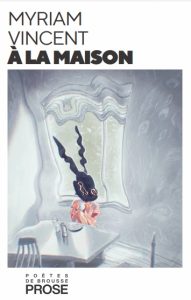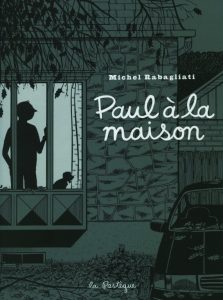From the calm of a village after a snowstorm to the suffocating quiet of a secret, silence can be stressful or soothing. At the seaside, we readily appreciate it, but in a house on the edge of a dark forest, we dread it. In these five suggested books, silence exerts pressure on the protagonists by forcing introspection or confronting them with their inner demons, which the chaos of everyday life camouflages.
Le poids de la neige
by Christian Guay-Poliquin (La Peuplade, 2016)
A power outage paralyzes the village where the narrator, whose name remains unknown, has just suffered a serious car accident. We plunge into a psychological confined space where his recovery is ensured by an old stranger: “He bends down, gets back up, and turns around as if his age were just a disguise.” The winner of the 2017 Governor General’s Award, the author grips us with his precise and captivating observations. In the urgency of the situation, mundane everyday gestures become acts of survival: tending a fire, making coffee, changing bandages. We see the days pass by through the window of the house in which the narrator is a prisoner: the variations of light, the snow piling up, the fir trees piercing the stained horizon. Looking out for a possible impromptu visit from Joseph or—better yet—Maria. This is a contemplative novel steeped in the brutality of the Nordic win- ter. Will the two men hold out until spring?

Quelques solitudes
by Marianne Brisebois (Hurtubise, 2022)
Marianne Brisebois’ second novel addresses the grief of a long romantic relationship. Over-night, there is no more news from her friends, who seem to have chosen their side. Lili finds herself alone in her childhood bedroom, with a limited budget to rebuild her life. She decides to answer a Kijiji ad and move into a surprisingly affordable large house on Île Verte. Although painful, this isolation allows her to build her own identity, question the choices she made as a teenager, and open herself up to new realities. The same goes for her strange roommate, whose quest quickly becomes just as captivating as that of the protagonist. Flash- backs allow two plotlines to unfold in parallel and help deepen the endearing characters.

À la maison
by Myriam Vincent (Poètes de brousse, 2022)
Jessica and her husband are expecting their first child and therefore looking to move into a bigger house. Constrained by the housing crisis and the pandemic, the couple buys a house with strange architecture in the suburbs of Montreal, far from their friends. On preventive withdrawal, the narrator finds herself alone between the white walls of their new home, which—strangely—no paint is able to cover. The solitude of her pregnancy, which in no way resembles what Instagram had promised her, leaves plenty of room for distressing phenomena. Doors slam, windows seem impossible to clean, taps turn on like in horror movies. Is the house playing tricks on her? Or worse, wishing her harm? With her expert writing, Myriam Vincent tackles the mental health of young mothers and the system that trivializes their experience. This is an in-your-face novel that keeps you in sus- pense until the end.

Femme de Vitruve
by Sara Lazzaroni (Leméac, 2023)
Simone and Nora don’t know each other, but they both earn their living by putting their charms to work for product placement. They frequent public places and social events with the aim of encouraging consumption. Their bosses exert excessive control over their weight, hair colour, and pastimes. They must constantly represent the idealized woman, a source of desire and envy. Unable to reveal the nature of their work to anyone, they live with the burden of their secrets without being able to confide. This two-voiced novel addresses the loneliness that grows behind apparent perfection once the production is over. Sara Lazzaroni’s writing sticks to the basics and cultivates the unsaid, in contrast with the artifice present in the story.

Paul à la maison
by Michel Rabagliati (La Pastèque, 2019)
The 9th volume in the series, awarded twice at the prestigious Angoulême International Comics Festival, is darker than the previous ones, even if it makes us smile a few times. Paul ends up alone in his house in Ahuntsic, which has been drawn with precision, right down to the placement of the trees and cedar hedges. His yard is breaking down at the same pace as his life, deserted by the people he loves. His mother is sick, his wife has left him, and his daughter, whom he almost never sees anymore, tells him that she is going to live in England. The melancholy of the passing days and seasons is described with tenderness and realism. The loneliness of his daily life also leaves room for some memories of his childhood and his life as a young father. This volume, in which you can immerse yourself even without having read the previous ones, describes grief and nostalgia.





